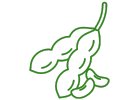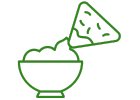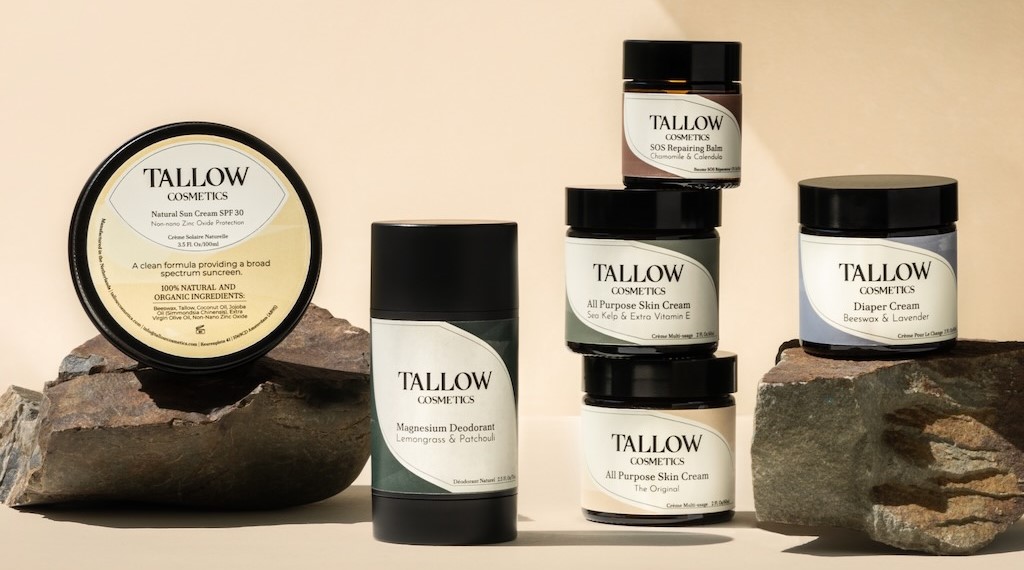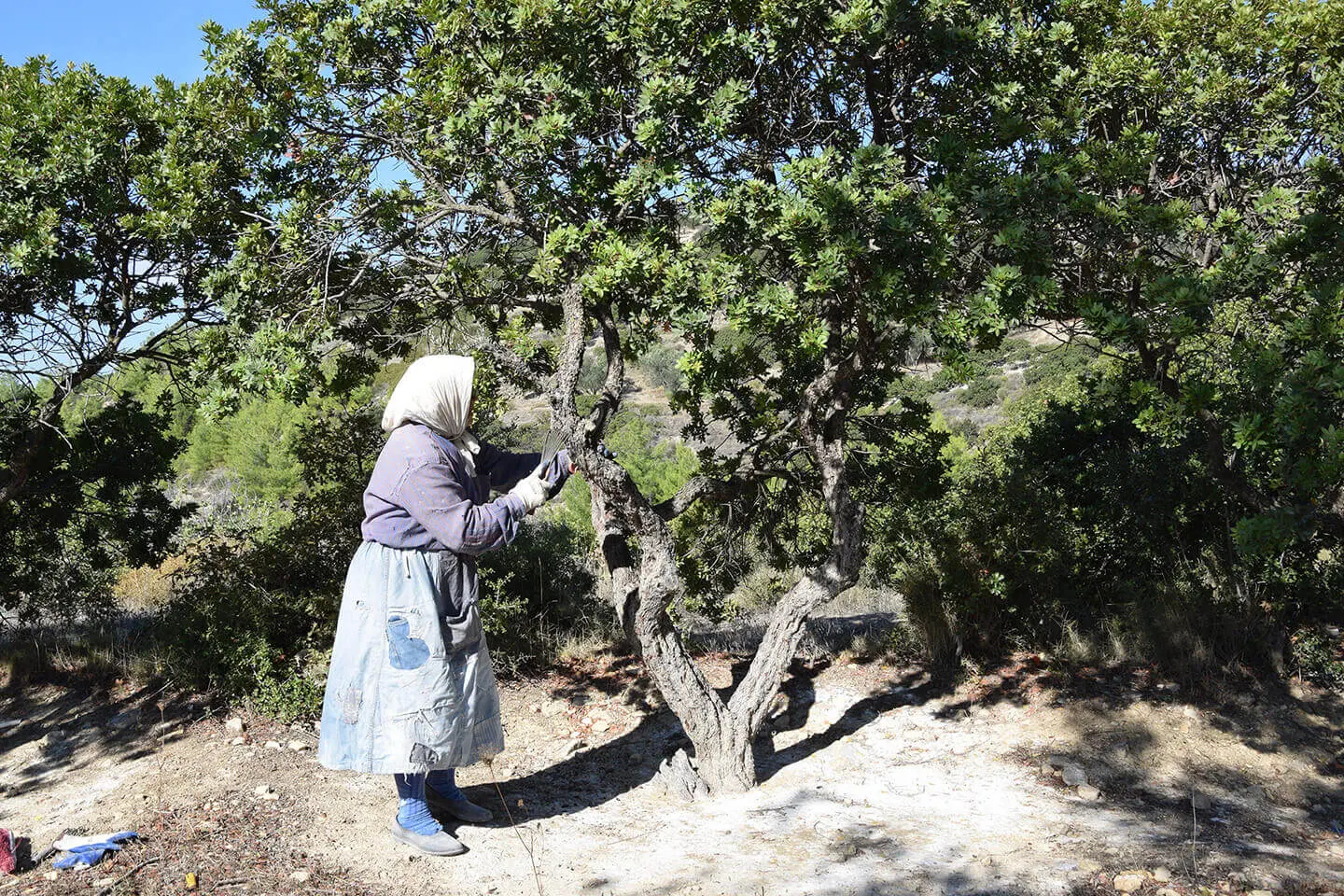Mastic Gum - Chios Mastiha a natural alternative to chewing gum - 30 g
Why buy
Every time you chew this gum, your face gets a complete workout. These premium chews provide the perfect resistance to challenge and satisfy your four jaw muscles.
Some people prefer its longer-lasting chewing ability, while others may prefer the softer and more pliable texture of regular gum.
Will I really achieve a stronger jaw?
Ano. Just like any other muscle, the jaw muscles can become stronger and more noticeable with intensive use and repetition. Regular use of our gums will give your face a firmer appearance.
CAUTION: Mastix gum is not recommended for fillings, crowns or weak teeth. Mastiff chewing gum is also not recommended for fever or in combination with drinking hot drinks. There is no liability on the part of Modern Native or us as a seller.
How does it taste?
Our gum has a slightly bitter taste at first, followed by a refreshing pine and cedar flavour. Combined with the aromatic character of this gum, you are guaranteed a pleasant chewing experience.
How is it different from regular chewing gum?
- It is not produced in the form of chewing gum, but in granules that come in different sizes. Often you need several pellets for enough chewing material.
- It is 100% natural and completely free of additives.
- The taste is not strong, but very mild.
- It is naturally antimicrobial and therefore beneficial to oral health.
How long will it last?
Our gum never loses its taste and is much more durable than regular gum, so you can chew it for hours and even chew it again. One jar lasts up to 2 months with daily chewing. Compared to chewing gum, this packaging is then worthwhile.
If you store our chewing gum properly (in a cool, dry place out of direct sunlight), it can last perfectly for several years.
Can it be swallowed?
Some people swallow the ointment without problems, but we do not recommend it.
Recommended dose
0.5 to 1 gram per day
But above all, find out what works for you. You can't overdose, although you must have very strong jaws .
Usage:
Simply bite down and start chewing. As this is an organic product, the size, shape and hardness of the individual pieces vary.
The grains often break apart at first, but after a while of chewing they form a whole. You often need several grains to get enough chewing material.
If the first piece is too soft and sticks to the teeth, drink water to stiffen and loosen it. Then add a harder piece to get the right consistency.
Sources of raw materials
- Modern Native masticha comes from the Greek island of Chios. Here, the sap from the resin of the mastix tree is collected, washed and dried by hand.
- Mastich gum has been used for centuries as a natural chewing gum and for various culinary and medicinal purposes.
- The process of harvesting mastic gum is done in the traditional way and requires skill and experience to avoid damaging the tree.
- The gum is an all-natural product made from resinous sap that oozes and crystallizes from the bark of the mastix tree (Pistacia lentiscus).
- Chios is the only place in the world where this rubber can be produced, thanks to the island's unique microclimate and soil formed by underwater volcanic activity.
Additional parameters
| Category: | Healthy chewing gums and mints |
|---|---|
| EAN: | 8720589464292 |
| Výrobce: | Modern Native B.V. Flevolaan 10, 9501 VG, Stadskanaal, The Netherlands |
| Země původu: | Nizozemsko |
| Vhodné pro: | Bez lepku-Lactose Free-Soy Free-GMO Free-Keto-Těhotné-Kojící-Děti |
Be the first who will post an article to this item!
Be the first who will post an article to this item!

Our ancestors lived differently from us. Traditional societies have been eating organ meat for centuries. They did it for a reason. Intuitively, they knew it was good for them. They knew that organ meats were the source of the most important nutrients. Similarly, in nature many predators go after organ meat first and muscle meat second.
We hardly eat organs these days. It's an ancient tradition that has faded away. Modern Native's mission is to bring the wisdom of our ancestors back to the modern world for optimal health, strength and happiness.
There is no organ meat like meat
Not all organs are the same. When looking for quality (organ) meat, it is important to check several points:
- 100% grass-fed cattle
- Without hormones
- Pesticide and GMO free
- Animals live stress-free and completely in the wild
The term "grass-fed" doesn't tell the whole story. The cow may be partially outside in the summer eating fresh grass, while most of the time she is in the barn and fed concentrate. 100% grass-fed, that's the Modern Native way of doing things. They only work with farmers whose cattle meet the above points. The organs are obtained from cattle in the Netherlands.
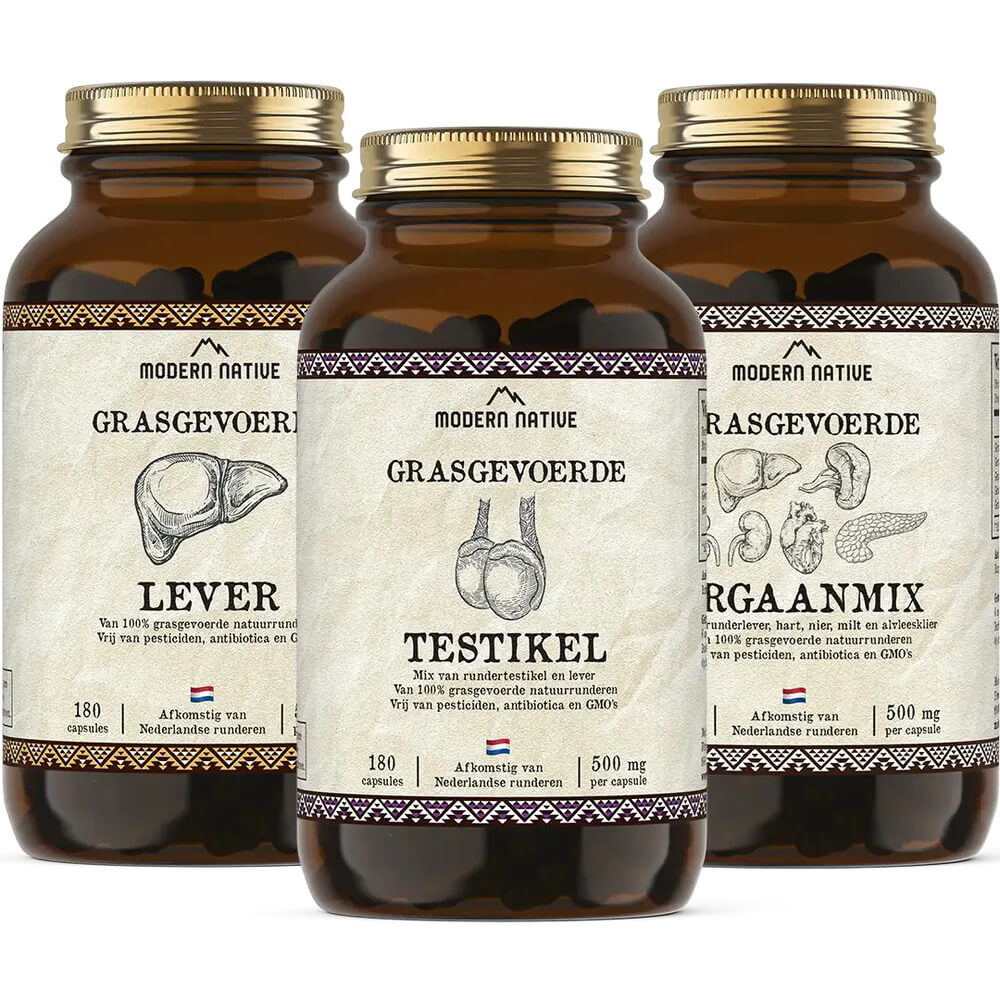
Why local cattle?
- It maintains the health of local natural farmers and creates jobs in the industry, thus creating more natural farmers in the Netherlands.
- Where there is more demand, there will be more supply. This will eventually allow the price of quality meat, including organ meat, to fall.
- More local natural farmers means fewer traditional herds (mass production) and happier cattle.
- Money spent on local farms stays in the economy, which has a domino effect and creates more jobs.
- Shorter distribution chains reduce unnecessary transport.
- When there are more natural livestock, healthier soil is created.
- Naturally grazing cattle return nutrients to the soil through the urine and manure they excrete.
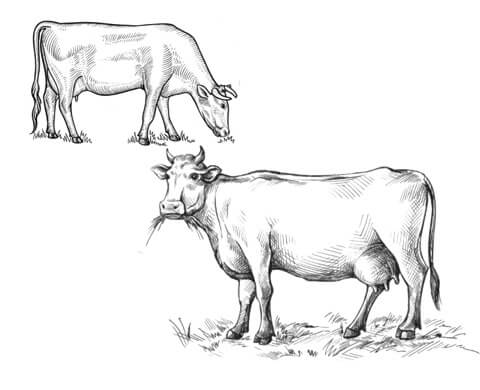
Method for Modern Native accessories
- It comes from 100% grass-fed cattle.
- No hormones.
- Pesticide and GMO free.
- The animals live stress-free and completely in the wild.
Why eat organ meat?
Beloved by our ancestors
Traditional peoples, Native Americans, and ancient ancestors believed that consuming the organs of a healthy animal would promote the health of the individual's organ. They ate "from head to tail", i.e. everything from the animal, because they intuitively knew how nutritionally rich the meat from the organs was.


.jpg)





